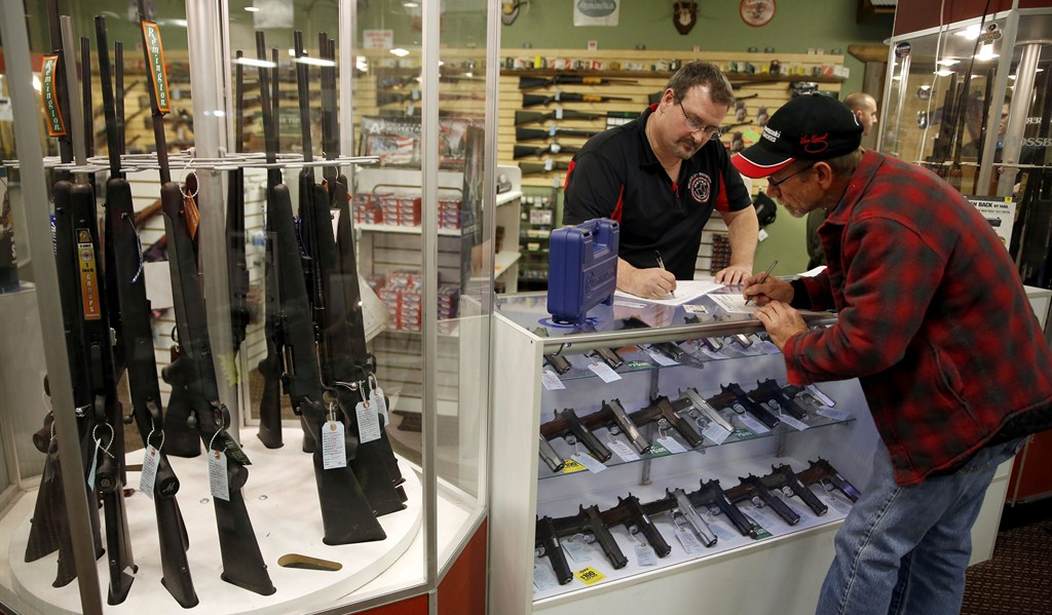About three weeks ago I reported on a survey that was being conducted by our friends over at Walk the Talk America. WTTA is an organization that seeks to bridge the gap between the firearm community and mental health community. Part of their continued service to both industries, WTTA conducted a gun owners survey to hear directly from the people who are affected by policies regulating firearms. The results are in.
There was a surprise or two, but they themselves admit, “This survey was not intended to be a professionally done research effort but rather a curiosity about the gun-owning demographic’s views on important topics.” And as such, this could be a good springboard for future studies and possibly collaborative efforts with other groups.
What was the survey about?
Are you tired of hearing statistics thrown around in healthcare, the media, and lawmakers that don’t accurately represent gun owners? We know we have had moments where we too get frustrated by some wildly inaccurate statistics thrown at us during important conversations. This is why we developed this survey to accurately understand what the 2A community thinks.
Our goal is simple – we hope to gather a clear and accurate picture of gun owners regarding mental health and some legislation. This way, we can lightly push back against inaccurate statistics.
We know that the 2A community is a diverse group of individuals with different backgrounds, experiences, and perspectives. With the help of our partners and individuals, we will get a strong sample size of how gun owners feel about important issues.
The survey lasted a month and included 366 respondents. WTTA indicated that the survey was widely circulated via “WTTA’s social media accounts, the WTTA email newsletter, and corporate partners’ distribution efforts.” To ensure the authenticity of the responses, the survey was not anonymous and logging in with a valid email address was required to participate. What we don’t know is if the lack of anonymity affected the study/results.
The responses were weeded out, where individuals who answered “no,” to if they are a gun owner, did not get the rest of the questions. Looking at the results, that seems to have been four individuals, with 362 answering the question(s) that proceeded.
When it comes to the purpose of having a firearm, the open-ended question allowed multiple responses, which does make sense. There’s no indication that any of the reasons were the “primary” reason, maybe a consideration for future surveys. 92.8% of respondents included “Own for protection,” as a reason for having a firearm.
Another open-ended question involved the type of firearm owned. “Semi-auto pistol” was noted to be owned by 97.8% of the respondents. 61.9% said they owned revolvers.
Looking at the pair of questions corroborates a statement made in the Heller decision, “It is enough to note, as we have observed, that the American people have considered the handgun to be the quintessential self-defense weapon.” Even in the small sampling of gun owners, we see that both self-defense, and handguns are rated as top answers to the respective questions.
Respondents to the survey were overwhelmingly white and male. WTTA lacks the resources to target an audience like many of the groups who conduct such studies and get a better representative sampling. The “stale, male, and pale,” demographic is not necessarily consistent with the face of today’s gun owner considering what we’ve learned about recent purchasing patterns. Further, other cultural idiosyncrasies might contribute to an unwillingness to participate in such a study without the blanket of remaining completely anonymous.
More than the majority of respondents use some sort of a storage device for their firearms. For the people that don’t use some sort of a mechanism; 30.5% say they live alone, 22.1% are not worried about unauthorized access, and 27.4% said that they “trust everyone in my house.”
Some comments from respondents that WTTA collected on the topic of gun storage includes:
- “Responsible storage should be the 5th rule of safe firearm handling. Treat every firearm as if it’s loaded, always keep the muzzle in a safe direction, finger off the trigger until ready to shoot, know your target and what is beyond, Secure your firearm when not in use.”
- “I believe responsible storage is the difference between life and death. Guns are something everyone should take seriously and to leave them not guarded by locking equipment/safes/etc.. is leaving things to a potentially serious situation. You might have family members/friends in the household who have never handled guns or may have suicidal thoughts that could use that firearm for lethal means. Responsible storage is also one more step you can take to prevent a suicide from occurring either for yourself or those in your home.”
- “People know their own situation, and all require different way of storing their Firearms.”
- “Responsible storage is part of being a responsible gun owner. Your storage should be adequate for your own situation. Assess your situation and set up accordingly. Safe storage can also be flexible. If your situation is more lax, but you have company coming over, your situation has changed and your storage needs should temporarily change as well.”
- “Most of my firearms are stored in the vault. I keep a few handy in case I need one. No one in my house but my wife and I. If I know grandkids are coming I lock those away.
When it comes to mental health services and individual perceptions, the majority of respondents lie within the middle of the spectrum, deviating 2 points in either direction from the middle. Individuals have either a benign or slightly less positive or a slightly more positive attitude towards mental health professionals. 22.1% are exactly in the middle, with the most responses. Second to the middle, “5”, was an “8,” on a scale of 1 to 10. Those respondents, comprising 18.3%, considered the profession to be “positive.”
A shocking result that blows away some narratives is that 72% of respondents said “No” to the following question:
Have any Extreme Risk Protection Orders (ERPO) or Red Flag Laws made you hesitant to seek out professional mental health services?
This was a country-wide survey, and I suspect the answers to this question would be different from targeted audiences. Ie. If you ask a New York, California, New Jersey, or Connecticut gun owner that question, the answers would probably be grossly different than Texas, Tennessee, South Dakota or Montana gun owners. If sampling from states with the strictest ERPO laws, I suspect, would yield a higher number of people that would answer “yes” to the question.
The open question concerning people’s views on getting mental health help received a mixed bag of responses:
- “While hesitant and concerned my self defense rights would get taken away some day, I also can’t practically afford the consequences of not getting mental health services. So, if guns were ever forcibly taken from me, I still wouldn’t feel compliant about it.”
- “I was diagnosed with postpartum depression by a therapist at 8 months postpartum from my second. I haven’t mentioned firearms ownership to her and I’ve been seeing her about a year.”
- “I feel there is no stigma. My wife feels otherwise. It has created friction. I seek help when needed. She declines.”
- “I am a combat veteran who fought in Vietnam and served for over 2 decades in the Army.If I had sought mental health, my Army career would have been over. The stigmatization of PTSD and depression leads to soldier suicide. We must stop soldier suicides!”
- “It’s ironic that red flag laws have made it LESS likely for people to seek help. As if men (and adults in general) don’t already have enough stigmas to conquer for a healthy life.”
- “Would’t consider seeking mental health services for fear of loosing gun rights, unless maybe I had thoughts of murder or suicide.”
- “As a retired psychologist, I am leery of the liberal bias and general level of competence in the field.”
- “Being a white, gun owning male, any mental health services I receive would more than likely be used against me.”
- “Access to mental health services is very important. No one should be forced to choose between self-care and self- defense.”
When asked about legislation, an overwhelming number of respondents, beyond the majority, noted that they were very familiar with ERPO laws, and 88% are not in favor of them. The biggest concern(s) listed relating to ERPOs was “all of the above.” That included rights restoration, power given to individuals to restrict rights, and lack of due process. 82.8% included all of those reasons, with only 1.7% of respondents having “no issue with ERPOs.”
There’s a lot to this survey, overall. Is this the conclusive “golden ticket” to answering the vexing questions we all have about these topics? No. It’s not likely that the WTTA staff and leadership will be running home to Grandpa Joe anytime soon saying they’re off to see Wonka. However, this survey does set the stage and pave the way for future research, and shows that there is an interest within the gun owning community to answer these questions. If WTTA had the resources to conduct this on a larger scale with an organization that does this professionally, who knows what kind of data we’d be able to collect – and how that’ll help shape/repeal policies.
Give the study a read yourself, which is available HERE. A lot of work clearly went into this and WTTA should be saluted in their efforts to continue to advance their mission. To learn more about Walk the Talk America, visit them on the web at: WalkTheTalkAmerica.org








Join the conversation as a VIP Member